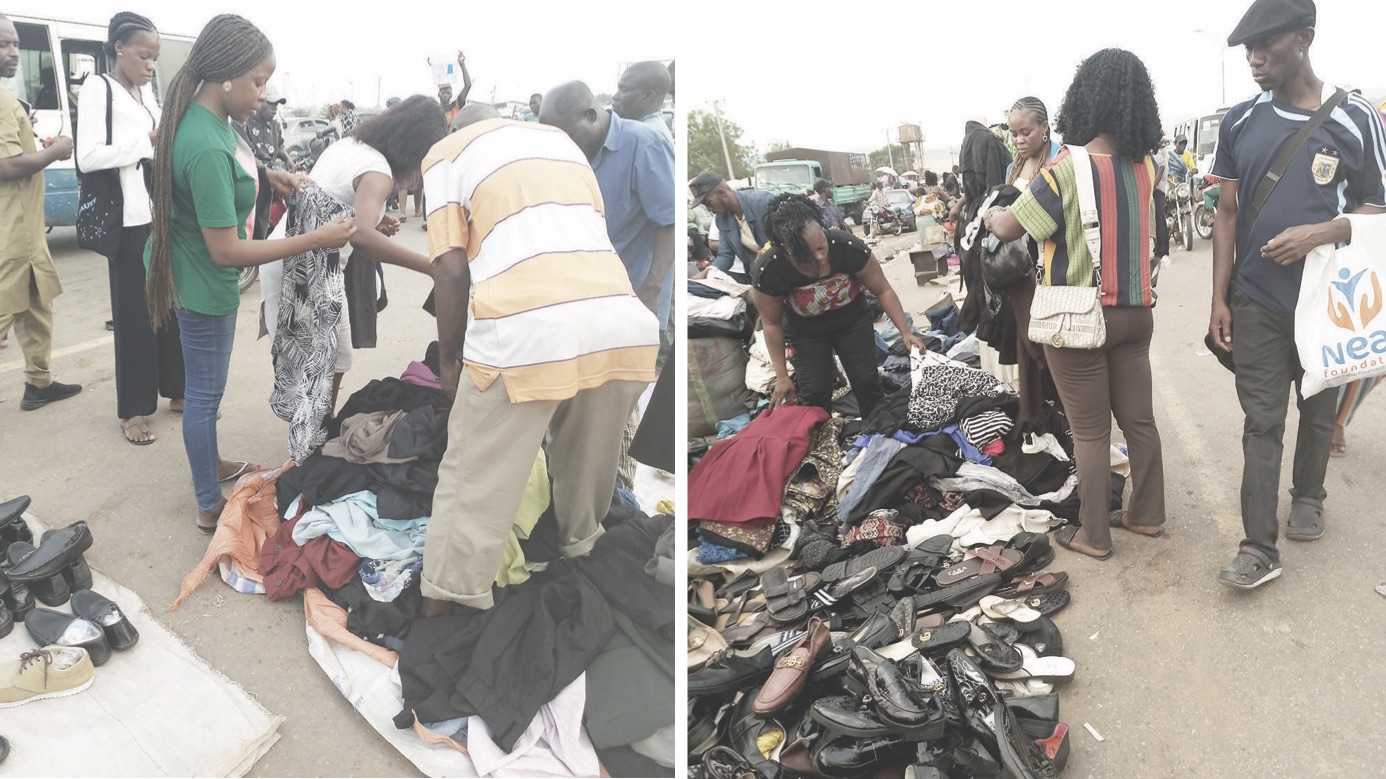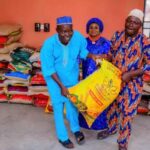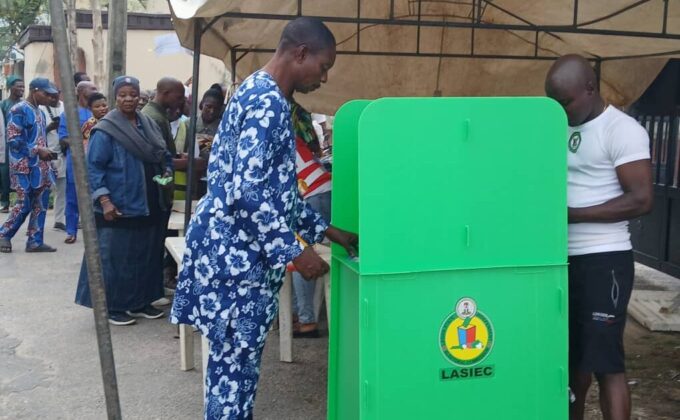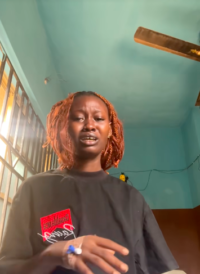From Sola Ojo, Abuja
In the heart of Nyanya Market, Abuja Municipal Area Council, Federal Capital Territory, Abuja, traders in second-hand clothes and bags known in local pallance as ‘okrika’ are fighting a quiet but desperate battle against forces far beyond their stalls: the soaring foreign exchange rate and crippling import duties.

In Nigeria, ‘Okrika’ has a long and complex history. In early 70s, the Nigerian government officially banned the importation of used clothes to protect public health and revive the domestic textile industry, the enforcement has been weak possibly due to population surge, limited local textile factories and weak political will.
Smuggling and informal trade networks continue to bring in large quantities of second-hand clothes, undermining the ban and complicating efforts to support local production.
Despite the ban, the market for second-hand clothing has boomed in recent years, largely due to economic pressures. High inflation has made new clothing increasingly unaffordable, pushing consumers toward cheaper alternatives.

Many Nigerians also prefer second-hand clothes for their quality, variety, and affordability. This demand is especially driven by the country’s large youth population, who seek fashionable yet budget-friendly clothing options.
However, this booming market has negatively impacted Nigeria’s domestic textile industry, leading to reduced production, job losses, and a declining contribution to the national economy.
Despite the implications of these imported clothes, bags, shoes, and electrics among others, Nigerians, who trade in them are now faced with forex and import duties
“The truth is, most of the goods in Nigeria are imported. If the dollar rate drops and import duties are reduced, the prices of goods will come down too,” said Ibe Innocent, secretary of the Okrika section at Nyanya’s Open Space Market.

Ibe sells school bags, laptop bags, and other imported accessories in the market. Just last year, he said, school bags went for between ₦7,000 and ₦8,000. Now, those same bags cost ₦15,000 and above.
“Laptop bags now go for between₦14,000 and ₦18,000. This same time last year when schools were resuming, we sold them just ₦7,000 or ₦8,000,” Ibe lamented.
The reason is clear. Okrika goods, though second-hand, are largely sourced from abroad, and traders purchase them with a dollar-dependent supply chain. Once they land at Nigeria’s ports, high import duties await further, inflating prices before the items even touch a market shelf.
Meanwhile, majority of these items came into the country through smuggling via hundreds of unmanned borders.
“Customers don’t understand. They only see the final price, but they don’t know that we buy in Dollars and sell in Naira. It’s killing small businesses,” Ibe said.
At a corner of the same market, Abba Tasiu spread his goods, bales of second-hand clothes under a makeshift shade.
“This is my business. The one I’m doing right now. We thank God. You know how things are these days. Things are shutting down,” he said.
Abba pays ₦N1,500 monthly dues to the market authorities, but even that small amount is difficult to raise now. He dreams of better support for traders like himself, saying: “Even if it’s just a little, give me something to add to what I have. Or help me carry the kaya (goods) and bring them to me. That’s how support works.”
At another end of the market, Mama Jerry, a well-known Okrika seller, adjusted a pile of children’s clothes, with high prices.
“Sales have dropped. It’s because of lack of finance, no money.” She pointed to a simple but painful comparison. “Before, if you had ₦10,000, you could buy plenty of clothes for your children.
“But now even with ₦10,000 if you manage to get 10 pieces, you’ll know you’re buying them one by one. Unless you’re going for rags,” she said.
“Those plain items are often cheaper,” she explained. “But if you want to buy something decent, you’re looking at ₦1,000 and above per piece. What happens to parents with four or five children and not even ₦10,000 to spare? You will just have to enter the canyon one by one.”
Despite the frustration, none of these traders have quit. They show up daily, adjusting prices, haggling with customers, and hoping for a better tomorrow.
But they are unanimous in their plea to the federal government to bring down the dollar rate and reduce import duties.
“We can’t be tired of speaking up. If government listens and makes those changes, we’ll all breathe easier,” Ibe said.
Until then, the stalls in Nyanya will remain open not because business is good, but because people like Mama Jerry, Abba Tasiu and Ibe Innocent have no choice but to push forward.


















Leave a comment